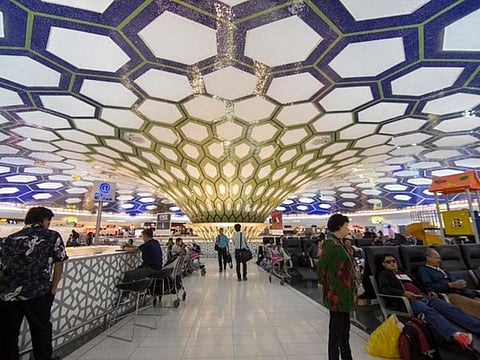UAE's airlines have a say in country's soft power influence
Emirates and Etihad along with country's airports create those first impressions

The UAE has been named the leading “soft power nation” in the Middle East – and 18th across the world – in the first ever Global Soft Power Index. The appealing business environment and stable economy were seen as the strongest assets.
However, I believe the establishment of the flag carriers– Etihad and Emirates – has bolstered the UAE’s soft power reputation than anything else. In saying this, the strategic development and expansion of both synergised with the government’s foreign policy and thus portrayed a powerful message to the world about the country’s brand image.
Weight of influence
Over the decades, the UAE has emerged as a progressive state and regional powerhouse, and undoubtedly surpassed the traditional heavyweights in the Arab world. The country’s progress has contributed to a strong international brand that has attracted significant foreign investment, tourists, and a reputation as a great place to work and live to date – even during the COVID-19 pandemic.
Back in the day, the UAE had a clear understanding of how to systematically and strategically develop the state’s global influence through policies and by planning a carefully crafted national brand. The leaders clearly recognized the importance of having a national airline - and airport - to fulfil their ambition.
In general, people collect their first impressions of a country through flying on the flag carrier or landing/connecting at the airport of that country. If they had a fabulous first impression of the country, they are more likely to return and visit.
Telling numbers
It has led to the UAE’s full commitment towards building its aviation sector with a world-class infrastructure over the past two decades. The success of the UAE’s soft power strategy with its aviation sector can be made out from the high levels of international passenger growth and arrivals into the UAE between 2010 and early 2020.
The shift of power in the Middle East has aided the UAE’s efforts to gain influence. The aviation industry provides its government with a unique opportunity to enhance the soft power on the global stage in a post-pandemic world.
The elements for a heightened level of soft power lie in the strategic utilisation of international connectivity at the hub airports of Abu Dhabi and Dubai, the customer experience with the flagship carriers Etihad and Emirates, making use of non-airline partnerships (e.g., tourism boards), and ease of travel and visa regulations for foreigners coming into the UAE.
Plugged into wider strategy
Investments in the aviation and tourism sectors have been part of successful diversification strategies for many countries. The impact of both sectors in the international arena goes beyond economic development, as aviation and tourism can play a role in the promotion of soft power through cultural diplomacy – via shared ideas, values, and cultures.
The preservation of the Emirati identity, culture, and heritage is an important part of the overall development strategy as well as any made on the diplomatic front.
Beyond physically transporting people and goods, the UAE has successfully mobilised people’s imaginations and perceptions of the country through promotional campaigns and videos. Through these sectors, images of progress, economic prosperity, stability, security, cosmopolitanism, and diversity are projected as part of a national brand to the rest of the world.
In the face of global challenges today, soft power is now more important than ever, and aviation will play its crucial part in contributing to a country’s strategy. The utilisation of soft power is manifested in cultural flows and people-to-people exchange.
Soft power transcends borders, builds bridges, and brings the world together through dialogue and mutual understanding. Ultimately, the Abraham Accords is another meaningful step with a soft power twist for countries like the UAE and Israel.
Although aviation will ultimately return to the long-term growth trajectory in the post pandemic era, aviation can be used as one of the soft power tools to promote the Abrahams Accords peace deal in the entire region and beyond.

- Linus Benjamin Bauer is Managing Director at Bauer Aviation Advisory and visiting lecturer at the City University of London.
Sign up for the Daily Briefing
Get the latest news and updates straight to your inbox







